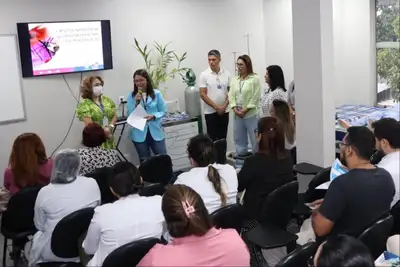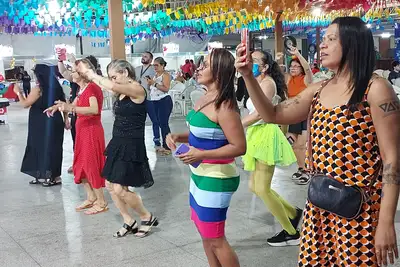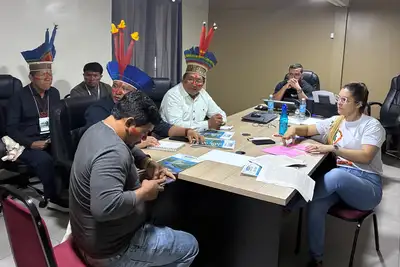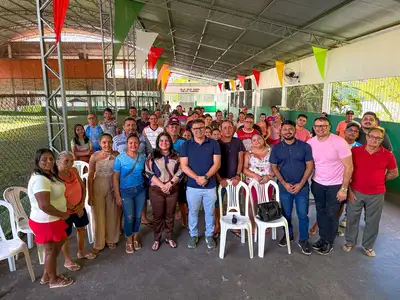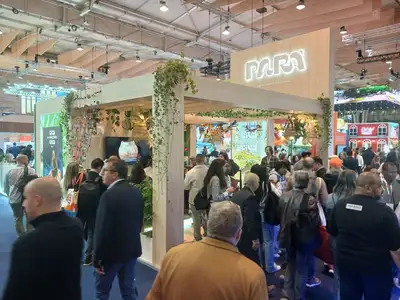Sustainable technology reduces costs and gas emissions in government agencies of Pará
Investments in solar energy, rainwater reuse, and eco-efficient buildings reinforce the State's commitment to the environment and responsible management of public resources
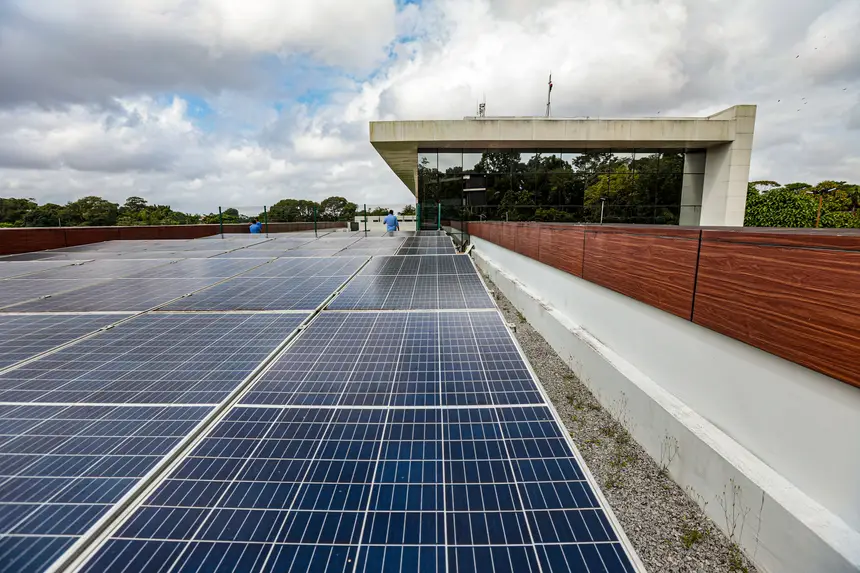
The implementation of photovoltaic energy systems, rainwater reuse strategies, and sustainable buildings are part of the main initiatives of the Government of Pará to reduce costs and environmental impacts. These actions have been applied in health units, regulatory agencies, urban mobility works, and cultural equipment, resulting in savings of millions to public coffers and a significant reduction in pollutant gas emissions.
The Operational Control Center (CCO) of the Metropolitan BRT is an example of sustainable architecture. With its own energy generation through a solar system and the use of rainwater for cleaning and irrigation of green areas, the building seeks international LEED certification (Leadership in Energy and Environmental Design), the most renowned in sustainable construction worldwide. Green roofs and sensors that prevent energy waste complete the construction.
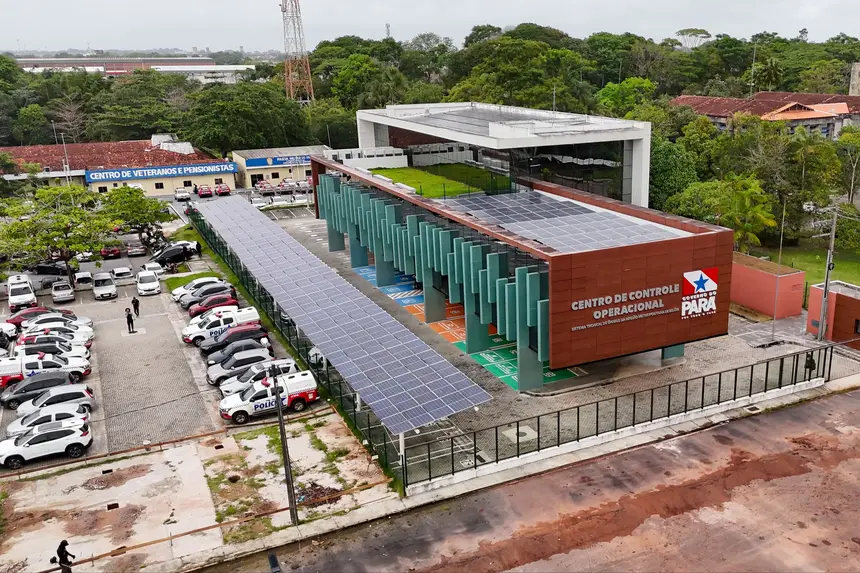
“The building was designed with a focus on sustainability and the efficiency of natural resources, incorporating various practices and technologies since its conception,” explains the architect in charge of the Metropolitan Transport Management Center, Cylla Ribeiro.
The solar energy generation system at Parque da Cidade is in the final installation phase and will come into operation in the coming weeks, after the concessionaire's approval. A total of 1,732 photovoltaic panels have been installed on the roof of the Gastronomic Center. Each unit has a power of 610 W, with an estimated generation of 125,000 kWh/month – which represents about 80% of the average monthly consumption of Parque da Cidade (140,000 kWh) and an approximate savings of 90% in energy costs.
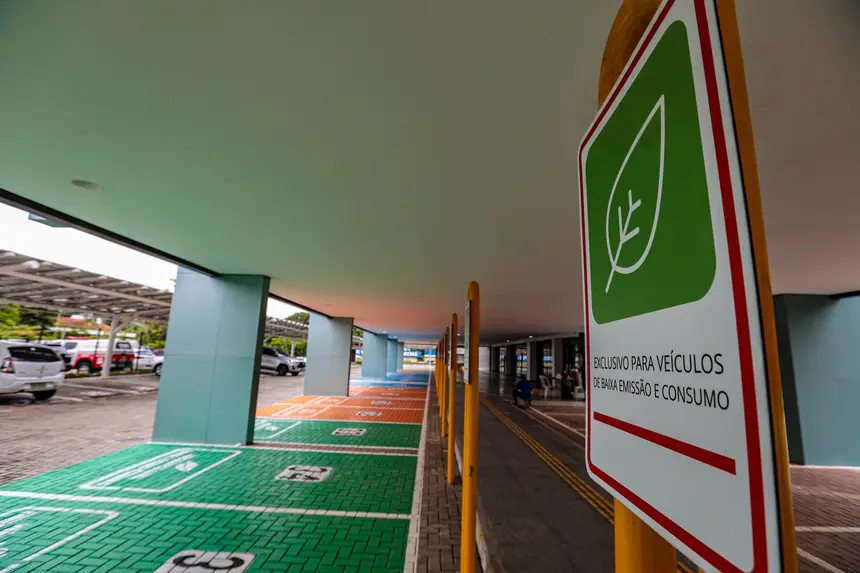
In the health sector, the Government of Pará has incorporated sustainable technologies as part of the strategy to modernize the system. At the Santa Casa de Misericórdia Foundation, for example, there is already a rainwater reuse system. In addition, 1,200 solar panels, 11 chargers for electric cars, and more than 100 batteries for energy storage have been installed. “This generates a savings of 150 thousand reais per month on the energy bill, in addition to reducing pollutant gas emissions. In the first year of the system's implementation, we have already reduced about 760 tons of CO₂, which is equivalent to planting 52 thousand trees,” said engineer Marcelo Frota, Infrastructure Coordinator at Santa Casa.
The solar panels at the unit serve a water heating system for bathing babies.
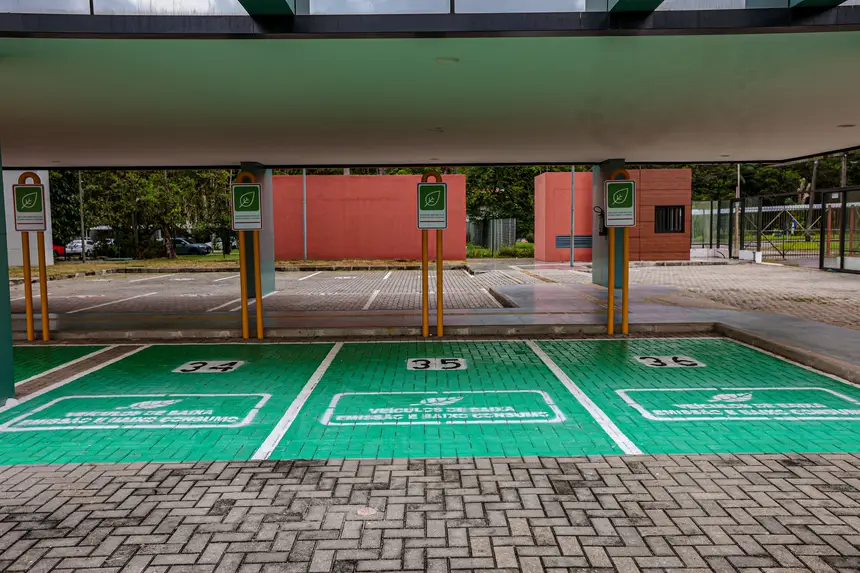
Regional hospitals, the Integrated Center for Inclusion and Rehabilitation (CIIR), and polyclinics adopt similar initiatives. At Poli Metropolitana, for example, the use of the photovoltaic energy system since 2021 has resulted in savings of up to 40% on monthly electricity expenses. The unit also has six reservoirs for rainwater reuse, each with five thousand liters, totaling 30 thousand liters.
Institutional commitment - For the State Secretary of Health, Ivete Vaz, the measures demonstrate the commitment of the State Executive Power to combine care for the population with respect for the environment. “Initiatives such as the use of solar energy and rainwater harvesting reinforce that it is possible to provide quality health services while contributing to the preservation of natural resources and building a more responsible and sustainable future,” she states.
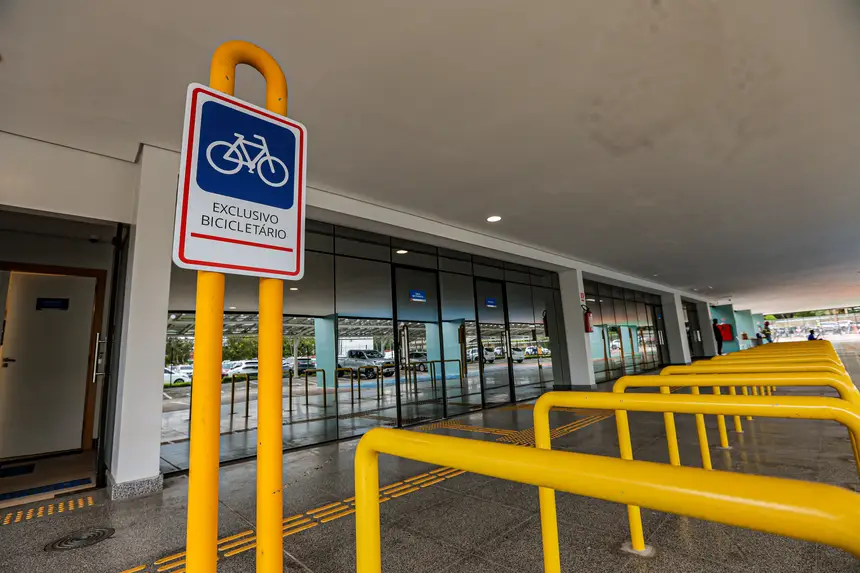
Clean energy in the countryside and culture - In June, the state government delivered a photovoltaic plant to the Pará Agricultural Defense Agency (Adepará) in Santa Izabel do Pará. Installed on an area of 9,500 m², the complex includes 2,224 solar panels with the capacity to generate 1.4 million kilowatt-hours of energy per year, enough to supply more than seven thousand homes. The production guarantees a monthly savings of 65.9 thousand reais and serves 167 units throughout the state.
The first Cultural Station of Marabá, where the Pará Cultural Foundation (FCP) operates, was delivered in April, featuring the first public library equipped with a sustainable service kiosk. The space was built with certified reforested wood, recycled plastic from 210 PET bottles, solar panels, and a water reuse system.



